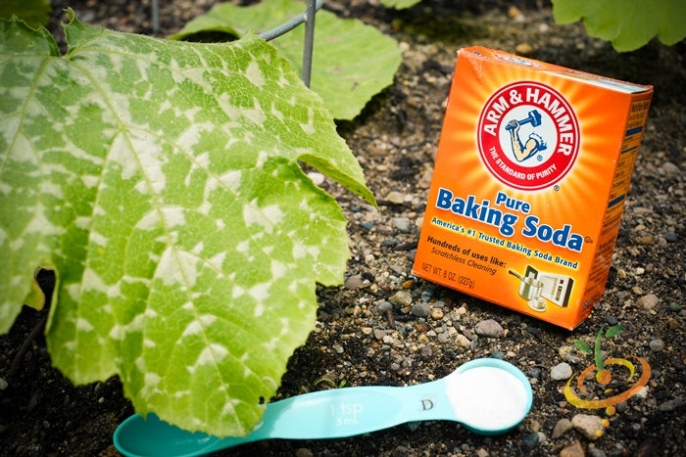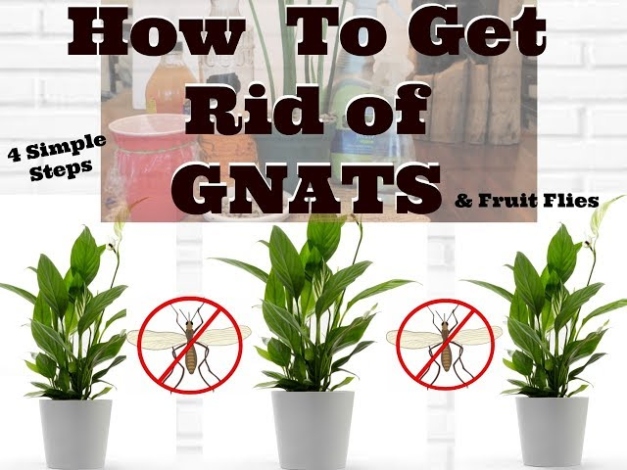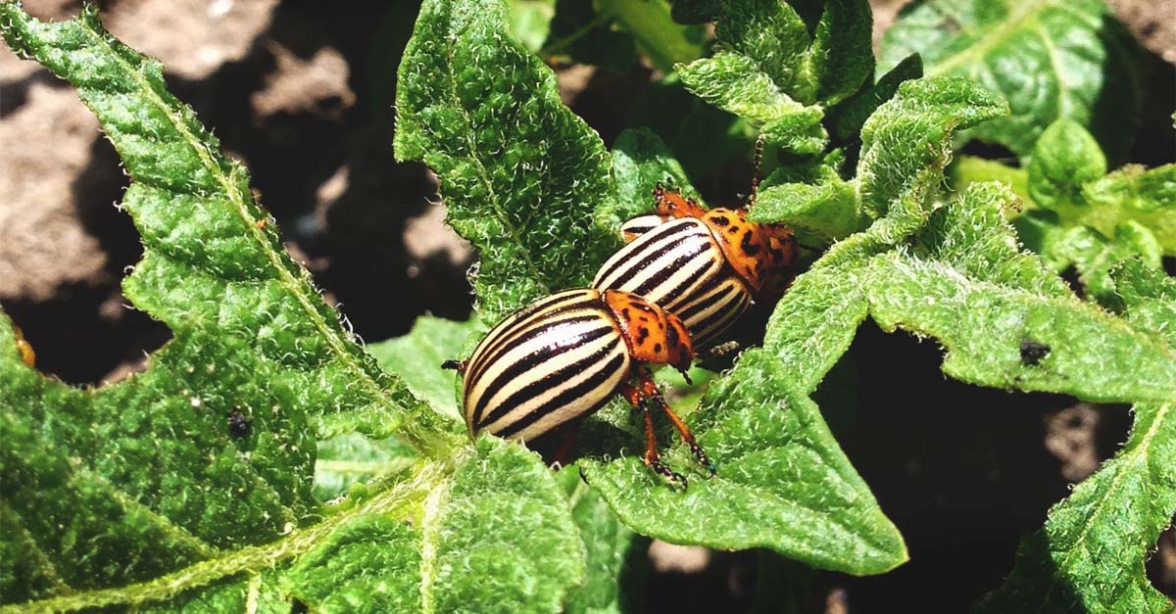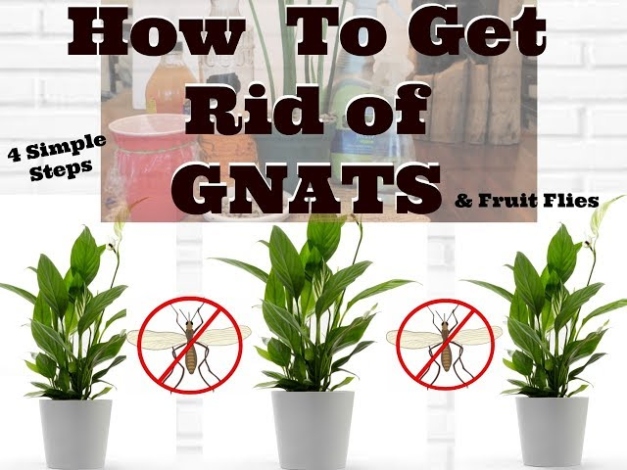Blooming Gardens: Banish Pests the Eco-Friendly Way!
When it comes to maintaining a beautiful garden, dealing with pesky Plant pests can be a real challenge. But fear not, because there are plenty of natural and eco-friendly ways to keep your garden free from unwanted visitors. From common pests like aphids and caterpillars to more stubborn intruders like snails and slugs, here are some tips and tricks to banish pests while keeping your garden healthy and thriving.
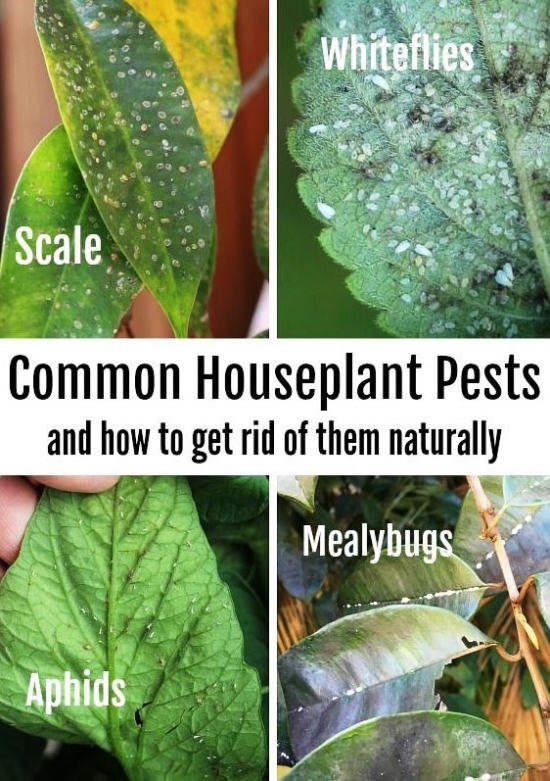
Image Source: wattersgardencenter.com
One of the most effective ways to control pests in your garden is by attracting beneficial insects. Ladybugs, lacewings, and parasitic wasps are all natural predators of common garden pests like aphids and caterpillars. By planting a variety of flowers and herbs that attract these helpful insects, you can create a natural ecosystem that keeps pest populations in check.
Another eco-friendly pest control method is to use physical barriers to protect your plants. Row covers, netting, and mesh screens can all help keep pests like birds, rabbits, and deer away from your garden. You can also create DIY traps using materials like beer or vinegar to catch slugs and snails, or use sticky traps to control flying insects like fruit flies and whiteflies.
For stubborn pests that just won’t go away, there are a variety of organic sprays and solutions that can help. Neem oil, garlic spray, and insecticidal soap are all effective at controlling pests like aphids, mites, and mealybugs without harming beneficial insects or pollinators. These natural remedies are safe to use around children and pets, making them a great choice for eco-conscious gardeners.
In addition to attracting beneficial insects and using organic sprays, there are plenty of other eco-friendly pest control methods you can try. Companion planting, for example, involves planting certain crops together to repel pests and attract beneficial insects. Marigolds, for instance, are known to deter nematodes, while basil can help keep mosquitoes at bay.
Maintaining a healthy garden soil is also key to preventing pest problems. Healthy, nutrient-rich soil will help your plants grow strong and resilient, making them less susceptible to attacks from pests and diseases. By adding compost, mulch, and other organic amendments to your soil, you can create a thriving ecosystem that supports plant growth while keeping pests at bay.
Overall, there are plenty of natural and eco-friendly ways to banish pests from your garden and keep your plants healthy and thriving. By attracting beneficial insects, using physical barriers, and employing organic sprays and solutions, you can create a pest-free paradise that’s both beautiful and sustainable. So roll up your sleeves, put on your gardening gloves, and get ready to banish pests the eco-friendly way in your blooming garden!
Nature’s Army: How to Keep Your Plants Pest-Free
When it comes to maintaining a healthy garden, dealing with plant pests can be a real headache. These pesky critters can wreak havoc on your plants, causing damage and potentially even killing them. But before you reach for the chemical sprays, consider enlisting nature’s army to help you keep your plants pest-free.
One of the most effective ways to control plant pests naturally is by attracting beneficial insects to your garden. These helpful bugs can act as a natural pest control, preying on the harmful insects that feast on your plants. Ladybugs, lacewings, and parasitic wasps are just a few examples of beneficial insects that can help keep your garden pest-free.
Another natural way to eliminate plant pests is by planting companion flowers and herbs. Certain plants, such as marigolds, chrysanthemums, and lavender, have natural pest-repelling properties that can help protect your garden from unwanted visitors. By strategically planting these companion plants throughout your garden, you can create a natural barrier against pests.
Additionally, you can make use of natural predators to control plant pests in your garden. For example, birds can be a great ally in the fight against insect pests. By providing bird feeders, bird baths, and nesting boxes, you can attract birds to your garden that will help keep pest populations in check. Not only is this a natural and effective way to control pests, but it also adds a lovely touch of nature to your outdoor space.
Lastly, organic mulches can also play a key role in keeping your plants pest-free. Mulching your garden with materials such as straw, leaves, or wood chips can help suppress weed growth and create a barrier against pests. Additionally, organic mulches can improve soil health, which in turn can help plants resist pest attacks.
By harnessing the power of nature’s army, you can effectively keep your plants pest-free without resorting to harmful chemicals. So before you reach for that synthetic pesticide, consider trying these natural methods to protect your garden. Your plants will thank you for it!
Buzz Off! 4 Organic Solutions for Pesky Plant Pests
When it comes to maintaining a thriving garden, dealing with plant pests is often a major challenge. While chemical pesticides may seem like a quick fix, they can have harmful effects on the environment and wildlife. Luckily, there are plenty of organic solutions that can help keep your plants pest-free without putting the planet at risk. Here are four natural ways to eliminate pesky plant pests and promote a healthy, thriving garden.
1. Neem Oil: A Powerful Pest Repellent
Derived from the seeds of the neem tree, neem oil is a powerful natural insect repellent that can help keep a wide range of plant pests at bay. Not only does neem oil repel pests like aphids, mites, and whiteflies, but it also disrupts their reproductive cycle, making it an effective long-term solution for pest control. Simply dilute neem oil with water and spray it on your plants to keep pests away and promote healthy growth.
2. Diatomaceous Earth: Nature’s Insecticide
Diatomaceous earth is a fine powder made from the fossilized remains of diatoms, a type of algae. This natural substance is highly effective at killing insects by absorbing the oils and fats from their exoskeletons, causing them to dehydrate and die. Diatomaceous earth is safe for use around plants and can be sprinkled directly on the soil or foliage to eliminate pests like slugs, snails, and beetles. Just be sure to reapply after rain or watering to maintain its effectiveness.
3. Companion Planting: Nature’s Pest Control
Companion planting is a traditional gardening technique that involves growing certain plants together to benefit each other in various ways. Some plants naturally repel pests with their scent or chemical compounds, making them excellent companions for vulnerable crops. For example, planting marigolds near your vegetable garden can help repel aphids, nematodes, and other common pests. Similarly, growing basil alongside tomatoes can enhance their flavor and deter tomato hornworms. By strategically choosing plant combinations, you can create a natural pest control system that promotes biodiversity and reduces the need for chemical interventions.
4. Garlic Spray: A Homemade Solution for Plant Pests
Garlic is not only a flavorful addition to your culinary creations, but it can also be a potent weapon against plant pests. To make a garlic spray, simply blend fresh garlic cloves with water and strain the mixture to create a concentrated liquid. This garlic-infused spray can be applied to your plants to repel aphids, caterpillars, and other pests that may be feasting on your garden. The strong scent of garlic acts as a natural deterrent, making it less appealing for pests to munch on your precious plants.
In conclusion, organic pest control is not only effective but also environmentally friendly. By using natural solutions like neem oil, diatomaceous earth, companion planting, and garlic spray, you can keep your garden healthy and pest-free without resorting to harmful chemicals. So next time you encounter pesky plant pests, remember to buzz off with these four organic solutions and enjoy a thriving garden filled with beautiful, healthy plants.
Green Thumbs Up: Tips for a Pest-Free Paradise
Welcome to the wonderful world of gardening, where green thumbs reign supreme and nature’s beauty flourishes. But, as any seasoned gardener knows, with great Plants comes great responsibility – particularly when it comes to keeping pesky pests at bay. Luckily, there are plenty of natural and organic solutions to help you maintain your garden paradise without the use of harmful chemicals. So, let’s dive into some tips for a pest-free paradise!
1. Companion Planting: One of the oldest tricks in the gardening book, companion planting involves strategically planting certain herbs, flowers, or vegetables next to each other to deter pests. For example, planting marigolds next to your tomatoes can help ward off aphids and nematodes, while basil planted near your beans can keep away flies and mosquitoes. By harnessing the power of nature’s own pest control methods, you can create a harmonious ecosystem in your garden that keeps pests at bay.
2. Neem Oil: Derived from the seeds of the neem tree, neem oil is a natural insecticide that can help control a wide range of garden pests, including aphids, mealybugs, and caterpillars. Simply mix a small amount of neem oil with water and spray it onto your plants to create a protective barrier against unwanted visitors. Not only is neem oil effective at controlling pests, but it’s also safe for beneficial insects like bees and ladybugs, making it a great choice for eco-conscious gardeners.
3. Diatomaceous Earth: Made from the fossilized remains of tiny aquatic organisms called diatoms, diatomaceous earth is a natural insecticide that works by dehydrating and damaging the exoskeletons of pests like ants, fleas, and beetles. Simply sprinkle a thin layer of diatomaceous earth around the base of your plants or directly on the pests themselves to effectively control infestations. Just be sure to use food-grade diatomaceous earth to ensure the safety of your garden and the environment.
4. Homemade Pest Sprays: If you’re looking for a DIY solution to pest control, look no further than homemade pest sprays made from common household ingredients. Ingredients like garlic, onion, hot peppers, and soap can be combined to create a potent spray that repels pests like aphids, caterpillars, and beetles. Simply blend the ingredients together, strain the mixture, and dilute it with water before spraying it onto your plants. Not only are homemade pest sprays effective at controlling pests, but they’re also safe for your plants and the environment.
With these tips in mind, you can create a pest-free paradise in your garden that’s both beautiful and bountiful. By harnessing the power of nature’s own pest control methods and using natural and organic solutions, you can maintain a healthy and thriving garden without the use of harmful chemicals. So, put on your gardening gloves, grab your trusty trowel, and get ready to enjoy a pest-free paradise in your very own backyard. Happy gardening!
how to get rid of plant pests naturally







